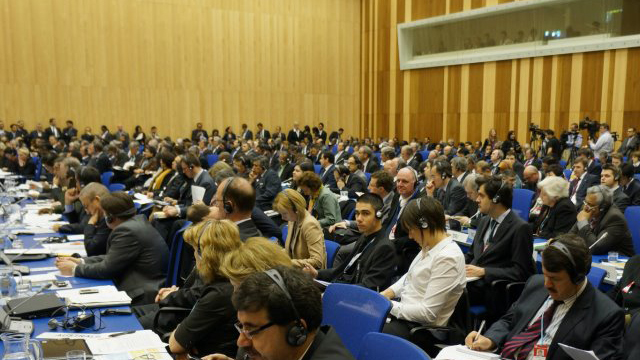Next year the General Assembly of the United Nations will put global drug policies on its agenda. Some people think this signals the dawn of a new era, a Spring of drug policy reform. I am more skeptical. In the global drug war, the end of winter is not as close as some have suggested. However, there are many advocacy opportunities NGOs should not miss.
Get a taster of the UN drug meetings by watching our video, produced in 2009
I have attended eleven CNDs so far. The year when I lost my last remaining illusions about the UN drug control system, was 2009, when the UN assessed the implementation of its 1998 political declaration, which had set a target of eliminating, or significantly reducing, drug trafficking within ten years. The “Beyond 2008” process offered an opportunity for civil society to feed governments information about the stark reality of the war on drugs. We organised a protest outside the Vienna International Centre to voice our discomfort with the current system. The failure of the 1998 goals could not be more obvious, for anyone attending the meeting with the most basic logical skills and any knowledge of the drug situation. But instead of acknowledging their failure, member states congratulated each other for the non-existent achievements of the drug war, and adopted a political declaration which, essentially, repeated the same goal: to make the world drug-free. From that year on, we decided we would no longer invest so much energy, as an NGO, in trying to change the system by challenging the UN head-on – but that we could achieve more, by attending with a Press badge and a camera, asking the questions the corporate media, all too often, fails to ask, and thus revealing the system’s unbearbly frustrating ignorance and inertia to the public.
In the global drug war, the end of winter is not as close as some have suggested. I caution against having excessively high expectations from UNGASS: it will be more like a station on the road to drug reform, than a historic turning point. The systemic inertia encoded in the UN drug control system will not permit any sudden breakthrough to happen. But NGOs can, and should, use it as an advocacy opportunity to influence national and regional policies.
Read more about UNGASS on IDPC’s website and on OSF’s website!
Peter Sarosi




